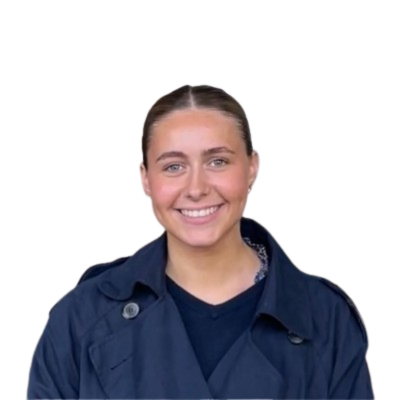Albert School Opens in Geneva: Where AI Meets Business Education

AI in the classroom: reinventing education with personalized learning
By Matteo Bianchi, Director of Albert School Switzerland
In March 2025, Bill Gates stated that artificial intelligence would eventually replace teachers in classrooms. A world where lines of code substitute for human connection and shared experience still feels distant. In reality, AI is entering schools and universities in a far more pragmatic way: as a complement to the teacher, not a replacement.
This shift is at the heart of Albert School's new Geneva campus, opening in September 2025. Positioned at the crossroads of global diplomacy and innovation, Geneva offers the perfect setting to explore how technology can elevate, not diminish, the human side of learning.
A new kind of AI: from generic to personalized
At Albert School Geneva, AI doesn't stand at the front of the class. Instead, it works quietly in the background, giving students tailored support that traditional systems simply can't provide.
With personalized learning AI, students no longer settle for generic explanations or one-size-fits-all feedback. Based on school-provided materials and each student’s learning history, this AI acts as a virtual tutor, capable of rephrasing misunderstood concepts, offering targeted exercises, or revisiting blocked topics.
Before class, the AI coach offers structured previews of key concepts. These summaries give students the essential information they need to arrive ready to engage in discussion. During the semester, the tool collects insights on student understanding, giving professors the ability to adjust in real time, an approach that blends academic rigor with agility.

Human-driven, tech-enhanced
AI is not replacing teachers at Albert School. It is helping them do what they do best: teach, mentor, and inspire. The role of professors remains central. What changes is their capacity to deliver more responsive, personalized instruction based on data-driven insights.
Take, for example, a student who struggles with statistical modeling. The AI coach might detect repeated errors in assignments, or questions frequently asked on the platform. It can then offer additional exercises, recommend review materials, or even suggest peer tutoring. All of this happens before a student falls behind., a major shift from the reactive models of the past.
Meanwhile, faculty can see how an entire class is doing, identify common pain points, and adapt their lectures accordingly. This isn’t just more efficient, it’s more human. It means educators can spend less time reviewing what students already understand and more time addressing real obstacles.
Extending learning beyond the classroom
One of the most powerful applications of AI is its ability to bridge the gap between classroom learning and real-world experience. This is particularly vital during internships, where students often feel disconnected from their academic environment.
Albert School's AI coach continues to follow students during their internship periods. It initiates regular check-ins: "What skills did you apply this week?" or "How were your interactions with your manager?" These reflective prompts help students make sense of their professional experience and track their own growth.
In case of difficulty; be it a mismatch with the internship role, a toxic work environment, or simply low engagement, the AI coach can raise a flag. This automatic alert system helps academic staff respond quickly and effectively, ensuring the student receives the support they need before minor issues escalate.
Safeguarding privacy and promoting inclusion
Of course, AI in education brings up pressing questions around data use. At Albert School, these systems are designed with student privacy at their core. No data is shared without explicit consent. Learning history is used solely for academic purposes and stored securely.
Accessibility is another key pillar. AI tools are available to all students regardless of background or learning style. Whether someone needs more visual explanations, interactive examples, or slower pacing, the system adapts to fit individual needs.
The goal is equity, not automation. Technology allows every student to get the kind of support that was previously limited to one-on-one tutoring. It democratizes access to customized learning, while keeping teachers, mentors, and classmates front and center.
Why Geneva, why now?
The decision to open Albert School’s next campus in Geneva wasn’t just strategic, it was philosophical. As a global capital of diplomacy, science, and ethics, Geneva stands at the intersection of questions the next generation will have to answer: How should we use technology? How can innovation serve humanity?
Geneva is also home to the European headquarters of major international organizations, from the United Nations to the World Health Organization, and a growing number of AI-focused NGOs and startups. This makes it a perfect learning environment for students pursuing careers that blend data science, business strategy, and social impact.
The Geneva campus will offer the same rigorous programs Albert School is known for, including:
- Bachelor’s in Business & Data
- International Bachelor in Business Administration (IBBA)
- International Master in Data & Business
Each of these programs integrates hands-on learning, case studies with top companies, and AI-enhanced instruction to prepare students for a fast-changing world.

A community of learning, online and offline
Personalized AI may improve individual outcomes, but learning is still a shared experience. At Albert School Geneva, students are part of an international cohort that collaborates in person and online, blending the best of both worlds.
Campus life in Geneva includes workshops, networking events, and collaborations with local organizations. Students have access to world-class faculty, real-world consulting projects, and a learning environment that reflects the future of work.
Online, the AI coach continues to support progress and identify opportunities for growth, without replacing the human relationships that make education meaningful.
Preparing for a world shaped by AI
We are entering a future where AI will not only power business decisions but shape the way teams are built, ideas are shared, and value is created. Business schools must keep pace.
Albert School’s Geneva campus is more than just a new location. It is a blueprint for the future of business education: one that is tech-forward, deeply human, and globally relevant.
By using AI to personalize instruction and enhance support, we are creating an environment where students can thrive, not just compete. Where learning is as flexible as it is rigorous. And where the next generation of leaders learns to use technology not just to optimize systems—but to elevate people.
Interested in applying? Learn more or download our brochure at www.albertschool.com.
Hear from our students about their amazing journeys and achievements

At Albert School, the student council fosters community and learning through events. By bringing students together, we enhance campus life and create connections, contributing to develop new soft skills.
Sulian
Bachelor in Business, Data, & AI
Bachelor Business, Data, & AI
Paris

What I like best about Albert School is how the professors foster our ambition and encourage us to have an entrepreneurial mindset!
Prisca
International BBA Business, Data, & AI - General Secretary of the Student Council
International BBA Business, Data, & AI
.png)
“The Business Deep Dives pushed me to grow beyond what I thought possible—turning lessons into real-world experience alongside inspiring companies.”
Samuel
International BBA Business, Data, & AI - Samuel, Student from Rwanda
International BBA Business, Data, & AI
